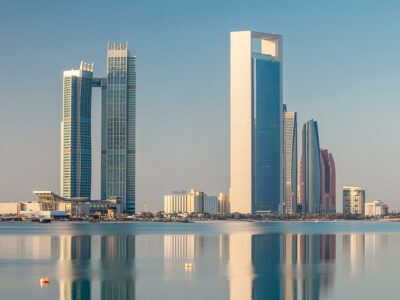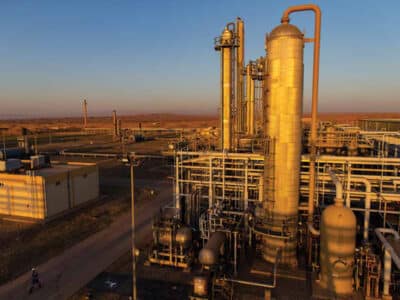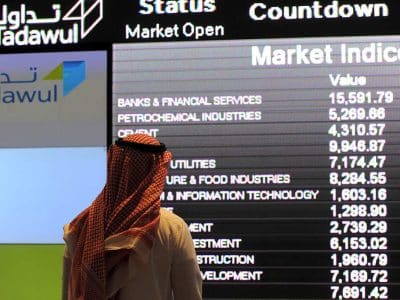Saudi Basic Industries Corp (SABIC) and Al Rajhi Bank are the standout performers as Saudi Arabia’s index TASI claimed a fresh 17-month closing high. SABIC rose 1.6 percent and Rajhi added 2.6 percent.
“Saudi shares traded positively in line with a broad rally in equity markets,” said Dr. Mohammed Ishaq Ali, a fund manager at Al Rajhi Capital.
“Anticipated growth in global oil demand and a significant fall in global oil inventories is likely to keep oil markets bullish in the coming weeks.
“The approval of first ever ETF in the region by Saudi Arabia and allowing foreigners to invest (in the ETF) also added to market momentum.”
Saudi Arabia on Tuesday approved its first exchange-traded fund, which will be accessible to foreigners as part of efforts to open up the biggest Arab bourse.
The index rose 0.9 percent to 6,674 points, its highest close since Oct. 15, 2008.
“The continuous flow of positive global and local market news is steadily guiding the market northwards, backed by the strong fundamentals of the economy,” added Ali.
Dubai’s index DFM made its largest decline for more than a month as investors cashed in recent gains following a media report on Dubai World’s $26bn restructuring plans. Emaar Properties dropped 4.5 percent and Dubai Financial Market lost 7.6 percent.
Dubai World will offer banks a single proposal to repay in full the $26 billion debt it is renegotiating, with interest likely linked to LIBOR, Al Arabiya reported on Wednesday.
This report spurred selling following an upbeat opening on the bourse.
The index fell 2.3 percent to 1,718 points, its biggest loss since Feb. 14 as it eased from Tuesday’s nine-week high. Volumes hit a three-month high.
“We are still in an uptrend – the trend was really extended on the upside and we should have seen more profit taking sooner,” said Ahmed Hamdi, Senior relationship manager at Prime Emirates.
Abu Dhabi’s index ADI ended lower for a third session, dropping 0.4 percent to 2,849 points.
Abu Dhabi Commercial Bank fell 4.1 percent. The bank was one of two UAE lenders on a committee of Dubai World creditors.
Qatar’s index QSI made its largest gain for 15 weeks as banks prepare to start trading the market again.
Banks had been unofficially banned from trading Qatar’s market since the Qatar government bought up their share portfolios last year. On Tuesday, the Qatar central bank said banks would soon be allowed to buy Qatar stocks, according to a statement on its website.
“Banks are generally accumulators of stocks, rather than sellers, so investors have taken the news as a good time to enter the market,” said Keith Edwards, head of asset management at Doha-based investment company The First Investor.
Qatar National Bank climbed 7.4 percent, Qatar Islamic Bank added 3.9 percent and Industries Qatar rose 5.4 percent.
The index climbed 3.8 percent to 7,315 points, its highest finish since Oct. 26 and biggest gain since Dec. 2. Volumes hit a 23-week high.
Bahrain’s measure BAX rose 0.3 percent to 1,514 points.
Oman’s benchmark MSI rose for a second session, ending 0.1 percent higher at 6,628 points.
Kuwait’s index KWSE slipped as banking shares weighed, despite telecom operator Zain rising on a likely completion of its asset sale.
Ithmaar Bank led banking decliners falling 8.3 percent while Kuwait International Bank dropped 1.7 percent.
Global Investment House, which is seeking arbitration over disputes with two local firms for $50.2m, fell 1.9 percent. Zain shares gained 1.5 percent.
The index KWSE slipped 0.3 percent to 7,423 points. (Reuters)





